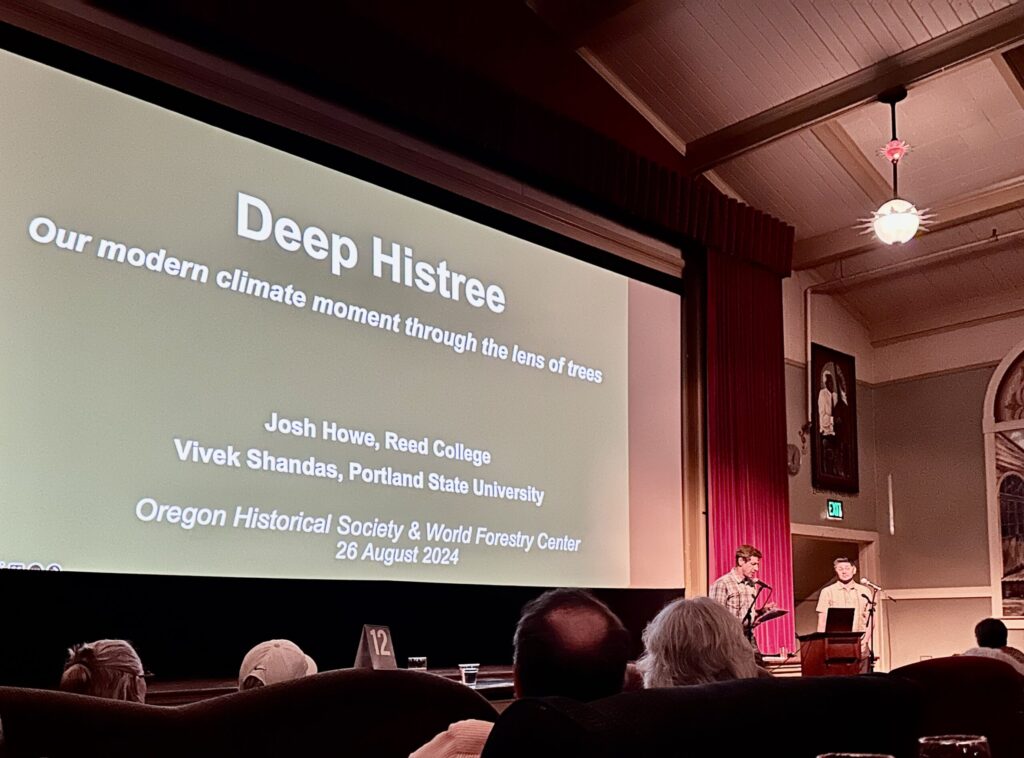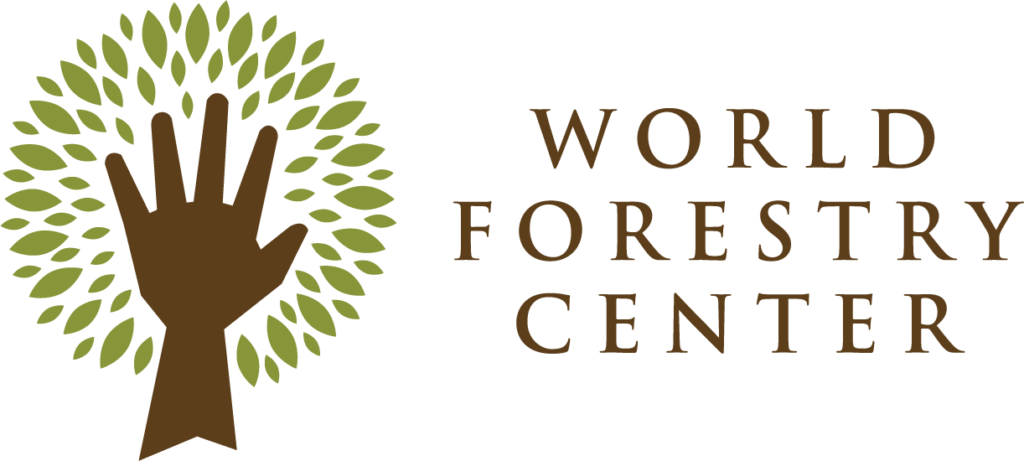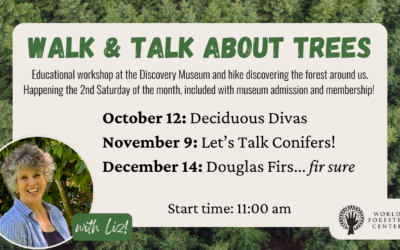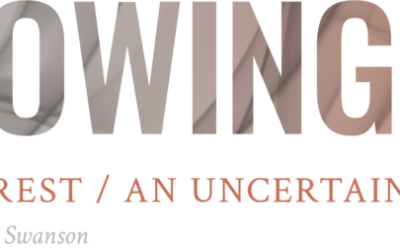Pub Night Blends History and Forestry

Last month, we ventured into the community and partnered with the Oregon Historical Society to host a History (+ Forests) Pub night at McMenamin’s Kennedy School.
The evening program featured a joint presentation from Dr. Vivek Shandas, Professor of Geography at Portland State University, and Dr. Joshua Howe, Associate Professor of History and Environmental Studies and Chair of the Environmental Studies Program at Reed College.
Shandas and Howe explored the entanglement of Oregon’s history and trees, from urban tree canopies (or lack thereof) to extensive forested lands (and those who care for them). All is seen through the lens of climate change and the Keeling Curve, measuring the global atmospheric carbon dioxide concentration at Mauna Loa Observatory.
After the presentation, the evening opened up to a Q&A with the audience, and more questions were explored about how to use the Keeling Curve best to analyze the changing climate, the ongoing efforts to expand the tree canopy in the Portland Metro Area, and steps to make forests a social priority.
The collaborative success was reinforced when one individual asked how to make forests a priority, to which Shandas responded, “By doing the work World Forestry Center is doing, hosting evenings like this with Oregon Historical Society, and bringing me and [Howe] together to explore these topics together.”
Our mission at World Forestry Center is guided by the understanding that more voices are needed in the forestry conversation because the health and management of our forests affect our communities. By meeting people where they are and introducing new avenues for collaboration and discussion, we expand the network of people who care about our forests.
“Partnering with the World Forestry Center allowed OHS and McMenamins to host a History Pub unlike any we have organized before, offering a presentation that joined the evolutionary history of trees with the scientific history of climate change and inviting audience members to consider the ways human and non-human histories have always been deeply intertwined,” said Eliza Canty-Jones from Oregon Historical Society.
As we continue to host more events like this, we will reach new audiences and explore new topics that recenter our collective understanding of and will to act for our forests.
This evening was the first in a two-part series about forests, climate, and history; the second program will feature Indigenous knowledge holders and their relationship to cultural burning on Monday, November 25. Please stay tuned for registration information coming soon.


